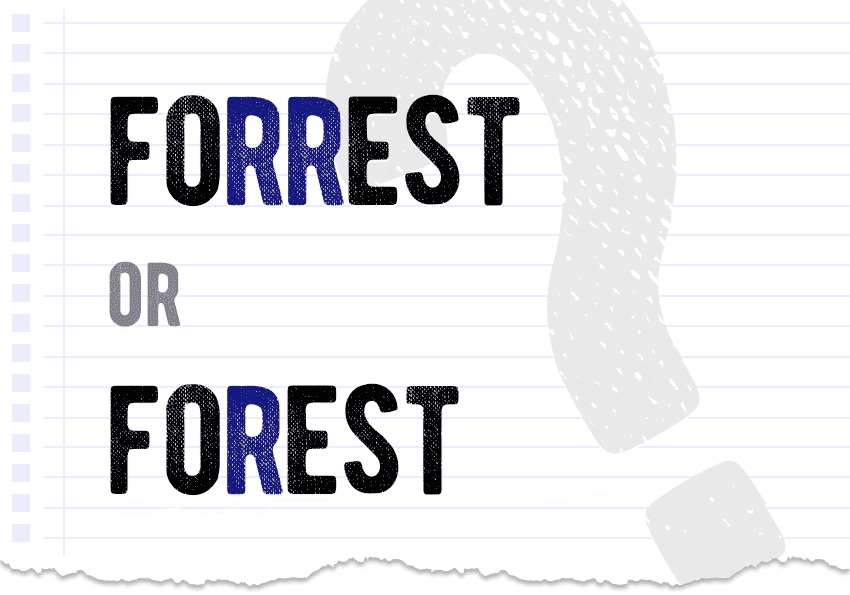Forrest or forest – which form is correct?
Deciding whether to use forrest or forest can be confusing. While both words sound similar, they have different meanings and uses. This article explores the correct usage of each term, providing examples and tips to understand their differences.

Forrest or forest – clarifying the usage
The main difference between “Forrest” and “forest” lies in their grammatical categories and meanings. “Forrest” is typically used as a proper noun, meaning it’s a name given to a person or sometimes a place. In contrast, “forest” is a common noun that refers to a large area covered with trees and undergrowth. Understanding this difference is key to using these words correctly in various contexts.
Forrest or forest – understanding the difference
Forrest
“Forrest” is primarily a proper noun. It’s often used as a first name or a surname.
Example: “Forrest Gump is a character in a famous movie.”
Forest
“Forest” refers to a large area covered chiefly with trees and undergrowth.
Example: “The Amazon rainforest is the largest forest in the world.”
Forrest or forest – historical origins
The word “forest” comes from the Old French word forest, originally meaning ‘outside’ (Latin foris), referring to an area outside the main settlement. Over time, it evolved to mean a large, wooded area. “Forrest,” as a name, possibly derives from an Old French word meaning “forest ranger” or “keeper of the forest.”
Forrest vs. forest – usage in sentences
Forrest (as a proper noun)
- “Forrest will join us for dinner tonight.”
- “The new student in class is named Forrest.”
- “Have you met Forrest? He’s new in town.”
Forest (referring to a wooded area)
- “The cabin is located deep in the forest.”
- “We went hiking in the forest yesterday.”
- “Birds chirped melodiously in the forest.”
Examples in literature
In literature, the words “Forrest” and “Forest” are used distinctively. For example, in Winston Groom’s “Forrest Gump,” the character Forrest says, “My name’s Forrest Gump. People call me Forrest Gump.” This quote highlights “Forrest” as a personal name. In contrast, William Shakespeare’s “As You Like It” features the line “And this our life, exempt from public haunt, finds tongues in trees, books in the running brooks, sermons in stones, and good in everything. I would not change it.” This beautifully illustrates the use of “forest” to depict a natural, wooded setting.
The word “forest” also appears in literature to describe natural settings. For instance, in J.R.R. Tolkien’s “The Hobbit,” there is a line: “The forest was dark and dense.” Meanwhile, “Forrest” as a proper noun is less frequently found in literary contexts. When it does appear, it typically functions as a distinct character or place name, clearly separate from the natural connotation of “forest.”
Common mistakes and confusion
Mistaking “Forrest” for “Forest” is a common error, especially in contexts where both a name and a nature reference are possible. Remember that “Forrest” is a name, while “forest” describes a wooded area.
Forrest or forest – conclusion
In summary, “Forrest” is a proper noun used as a name, whereas “forest” refers to a large area covered with trees. Understanding this distinction is crucial for correct usage in writing and speech.


